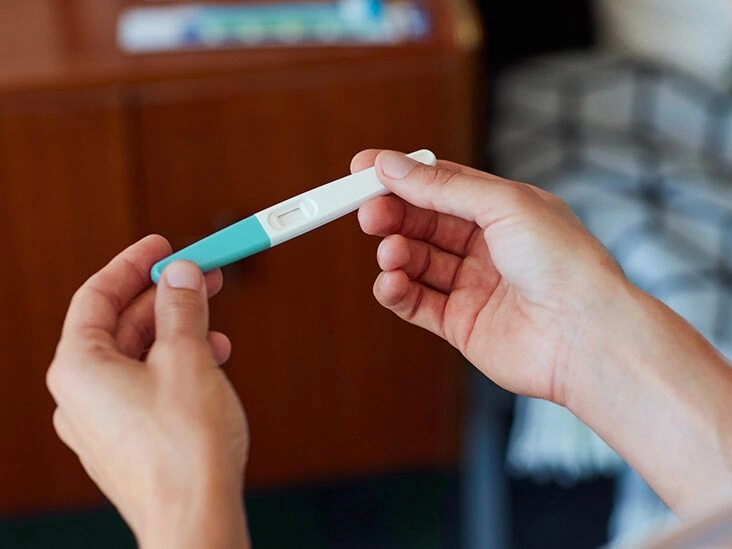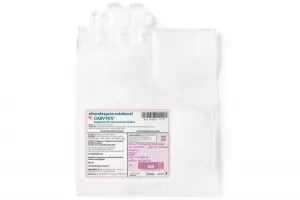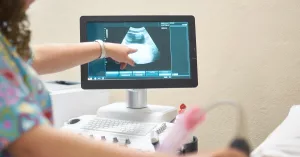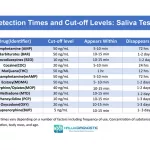If you miss a period — whether because you forgot your contraceptive or you’re hoping to conceive — you might want to take a pregnancy test. These kits can often detect pregnancy starting on the first day you miss your period.
Some tests claim to identify pregnancy before your period is due, but for dependable results your body needs time to raise the hormone levels these tests detect. Testing before a missed period increases the chance of a false negative.
Read on to learn how pregnancy tests function and how soon you can use one if you suspect you might be pregnant.
How soon can you take a pregnancy test?
Certain tests are highly sensitive and may indicate pregnancy before your period arrives. Still, it’s best to wait until at least the first day after a missed period to take any pregnancy test. For greater accuracy, wait a week after the missed period.
Small amounts of hCG can be detected from about 6 days after ovulation, but it usually requires 7–10 days post-ovulation for hCG to build up enough to register on a test.
If your cycle is irregular and you’re unsure when your period should start, it’s advisable to test at least 21 days after unprotected intercourse or if you’re worried your contraceptive might have failed.
Testing too early in your cycle can produce a misleading result.
How pregnancy tests work
Whether you’re actively trying for a baby or worried about contraceptive failure, a pregnancy test can confirm pregnancy. However, taking it prematurely may yield an incorrect result.
Pregnancy tests detect the hormone human chorionic gonadotropin (hCG), which is present only during pregnancy. The body releases hCG after a fertilized egg attaches to the uterine lining in a process called implantation. Implantation generally occurs several days after conception, when sperm fertilizes the egg.
Over-the-counter pregnancy kits usually check urine for hCG. The method for collecting urine depends on the specific brand you buy.
How to perform the test
You may need to:
- collect urine in a cup and dip a test stick into it
- collect urine in a cup and use a dropper to transfer some fluid into a designated well
- hold the test stick in your urine stream to capture midstream urine
The Office on Women’s Health reports that home pregnancy tests are highly accurate if used as directed.
How to read the results
You can perform the test in the privacy of your home. Open the kit, follow the enclosed directions, and wait the instructed time before checking the outcome.
When the waiting period ends, results usually appear as one of the following:
- a color change
- a line
- a symbol, such as a plus or minus
- the words “pregnant” or “not pregnant”
Most tests will show a result within a few minutes.
Five signs you may be pregnant
Below are some indicators that you might want to take a pregnancy test.
1. You’ve missed your period
A missed period is one of the earliest and most dependable signs of pregnancy.
If you don’t track your cycle carefully, it can be hard to tell whether you’re late. A 28-day cycle is common, but cycle length varies from person to person. Consider taking a test if it’s been more than a month since your last period.
Other causes can delay or skip a period, including stress, certain medications or conditions, changes in contraception, and so forth.
Light bleeding or spotting can occur in early pregnancy as the fertilized egg embeds into the uterine wall during implantation. This may resemble a light period but won’t follow the usual timing or pattern. Pay attention to differences in color, texture, or amount of bleeding, and seek medical advice if you’re concerned.
Always consult a healthcare provider if you have bleeding and a positive pregnancy test.
Other reasons your period might be late.
2. You have cramps

Implantation can cause cramp-like sensations similar to menstrual cramps. You might feel this discomfort and assume your period is imminent, but then it doesn’t arrive.
If that happens, consider taking a pregnancy test.
Other causes for abdominal cramps.
3. Your breasts hurt

As pregnancy advances, your body increases production of estrogen and progesterone. These hormones initiate changes to support the developing fetus.
Heightened blood flow can make your breasts tender and appear fuller. Nipples may be sensitive, and veins may become more visible beneath the skin.
These signs also commonly occur in the days before a period, so breast pain alone doesn’t confirm pregnancy.
Other reasons you may have breast pain.
4. You’re feeling different

Alongside cramps and sore breasts, early pregnancy can bring on:
- nausea
- food aversions
- fatigue
- more frequent urination
These symptoms may intensify as weeks pass before hCG levels stabilize later in the first trimester. You know your body best, so be mindful of unusual changes — they may prompt a pregnancy test.
5. Your birth control method failed

Pills, condoms, and other contraceptives don’t offer absolute protection against pregnancy. There’s always a small possibility of conception, even with careful use.
For example, birth control pills can be over 99% effective with perfect use, but perfect adherence doesn’t always happen. In typical use they’re about 91% effective.
Condoms can tear or slip. Male condoms are up to 98% effective with perfect use, but their typical-use effectiveness is about 82%.
Long-acting methods like intrauterine devices (IUDs) are more reliable and remain reversible.
If you’re using contraception but notice other signs of pregnancy, it’s sensible to take a test.
What’s the best birth control method for your lifestyle?
Frequently asked questions
How accurate are at-home pregnancy tests?
Home pregnancy tests are generally highly accurate provided you follow the instructions and don’t test too early.
How soon will a pregnancy test read positive?
Some manufacturers claim their tests can detect pregnancy up to 6 days before your period is due, but these early results are less reliable. They may indicate a negative result when you are actually pregnant because hCG levels are still low.
Can pregnancy be detected after 5 days or 2 weeks?
Testing 5 days or even 2 weeks after intercourse may not be helpful, since the result could be inaccurate.
What are some early signs of pregnancy?
Early pregnancy signs can include a missed period, unusual spotting or bleeding that doesn’t match menstrual patterns, tender breasts, cramps, and an overall sense of feeling different. For many, a missed period is the only early sign they notice.
Takeaway
Signals that might prompt a pregnancy test include a missed period, breast tenderness, or having had sex with a male partner without using contraception.
For the most reliable outcome, test after you expect your period. You can also test using first-morning urine or wait several hours between urinations to concentrate hCG in the sample.
Testing promptly helps ensure you receive appropriate care for yourself and, if pregnant, prenatal care for the baby. If a test is positive, contact your healthcare provider soon to discuss options and next steps.

























Leave a Reply
You must be logged in to post a comment.